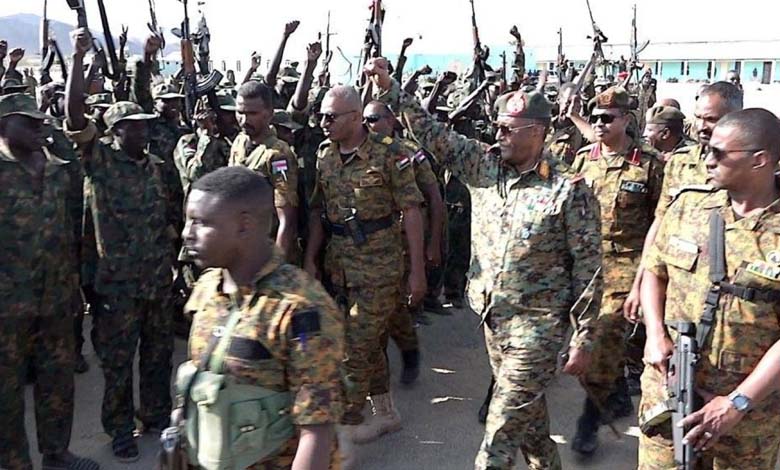Sudanese Army rejects ceasefire despite Ramadan, reflects Islamic Movement’s Stance

The Sudanese army has rejected any talk of a “ceasefire or negotiation” before the withdrawal of “Rapid Support Forces” from all cities they control in the country and the surrender of their weapons despite the month of Ramadan.
Lieutenant Yasser Al-Atta, assistant to the army commander, said during the graduation of a new batch of volunteers (mobilized): “There is no ceasefire during Ramadan by order of the army and the people,” adding that the head of the Sovereignty Council, Abdul Fattah Al-Burhan, “informed that to everyone who contacted him.”
He added that “the ceasefire will only start when the Rapid Support Forces withdraw from the cities of Geneina, Zalingei, Al-Daein, and Nyala in Darfur, as well as all cities and villages in the states of Kordofan and the al-Jazirah region, including the capital Khartoum.”
Al-Atta stressed that the army “will not enter negotiations until the Rapid Support Forces have surrendered large weapons, military equipment, and vehicles, and withdrawn to six designated camps in Darfur and the capital,” adding, “after that, we will sit with them to implement justice and the law.”
The Sudanese army lieutenant swore that “there is no place for the Daglo family and their senior leaders in political work or in the military institution.”
The Rapid Support Forces welcomed the UN Security Council’s call for a ceasefire during Ramadan, confirming their readiness to discuss agreed-upon monitoring mechanisms to ensure the ceasefire’s implementation.
A leader of the Rapid Support Forces, who requested anonymity, said that Yasser Al-Atta’s remarks about rejecting the ceasefire “reflect the stance of the Islamic movement’s organization and the remnants of the ousted regime,” adding that “this escalation offers evidence of allegiance and obedience to Islamist leaders who ignited the war and seek to escalate it.”
He added that “the demand for the withdrawal of the Rapid Support Forces reflects the army’s inability, fought by Islamist brigades on the ground, after failing to regain the cities and military positions that we liberated from them.”
According to the armed forces’ Facebook page, Al-Atta urged the Sovereignty Council to “form a war government to lead the state to complete the suppression of the rebellion and rebuild the country after the war.”
The army assistant commander also called on the Defense Minister to “move forward in completing the integration of all armed factions’ forces within the army so that the weapons are in its hands alone.”
Shortly before the official announcement of the ceasefire, accounts and pages on social media led organized media campaigns inciting army leaders to reject any ceasefire during Ramadan and to continue fighting to eliminate the Rapid Support Forces.
These groups considered the resolution project presented by Britain to the Security Council as an “attempt to save the Rapid Support Forces from collapse.”
They called on all parties to “enable full, rapid, safe, and unhindered access of humanitarian aid, including across borders and front lines, and to protect civilians and adhere to their commitments under international humanitarian law.”












